Featured
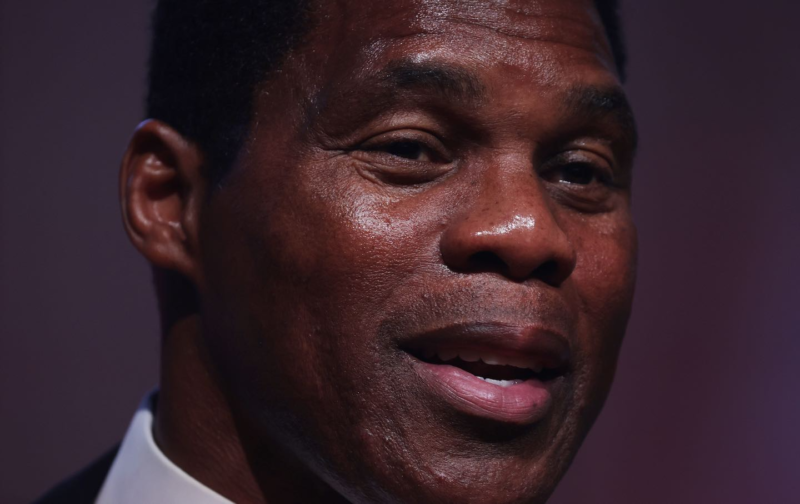 The “Faces” of Black Conservatism Tell Us Everything—About the GOP. By Elie Mystal / The Nation
The “Faces” of Black Conservatism Tell Us Everything—About the GOP. By Elie Mystal / The Nation
Republicans’ embrace of Kanye West and Herschel Walker says more about how the GOP thinks about Black people than it does about Black conservatism in America.
I don’t agree with Black Republicans. I think they are wrong on their policy prescriptions for America. I think many of them are entirely too tolerant of the systemic racism that plagues our society, even to the point of complicity. I think, when pressed, they too often resort to the victim blaming that runs through that core Republican ethos of “I got mine, why can’t you get yours?”
If I were a normal Black conservative right now, I’d be pissed. The GOP has turned its back on them and instead given the mic to carnival barkers who couldn’t marshal a coherent argument for tort reform if you gave them a cup of hot coffee and cue cards. Instead, the most prominent Black conservative in the country right now, Supreme Court Justice Clarence Thomas, was seen yukking it up and posing for pictures with Herschel Walker. Read more
Related: Right-wing hypocrisy is never hypocrisy. It’s a coherent belief system. By Laura Clawson / Daily Kos
Related: Republicans double down on hate and fear, never mind midterm losses. Joan McCarter / Daily Kos
Political / Social

How a Perfectly Normal New York Suburb Elected a Con Man. By Steve Israel / The Atlantic
Democratic complacency, Republican extremism, and media decline helped George Santos take over my old congressional district.
On Election Night, Republicans swept all four of Long Island’s House seats. Democrats didn’t realize the severity of the loss, however, until The New York Times revealed that Santos had lied about his education, work experience, philanthropic pursuits, and finances, among other things. This was no familiar case of a politician embellishing around the edges: Santos appeared to have made himself up. On Monday, he admitted that he’d engaged in serial falsehoods, but said that he intended to join the House majority anyway. Read more
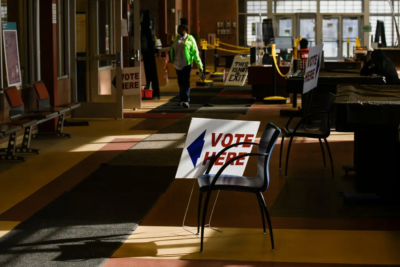 Democrats, Feeling New Strength, Plan to Go on Offense on Voting Rights. By Reid J. Epstein / NYT
Democrats, Feeling New Strength, Plan to Go on Offense on Voting Rights. By Reid J. Epstein / NYT
After retaining most of the governor’s offices they hold and capturing the legislatures in Michigan and Minnesota, Democrats are putting forward a long list of proposals to expand voting access.
The most popular Democratic plan on voting access is to join the 20 states that have already enacted or approved automatic voter registration, a system that adds anyone whose information is on file with a government agency — such as a department of motor vehicles or a social services bureau — to the voter rolls unless they opt out. Oregon, which in 2016 became the first state to adopt the practice, had the highest percentage of voter turnout in the country last month, a distinction held in recent elections by Minnesota. Read more
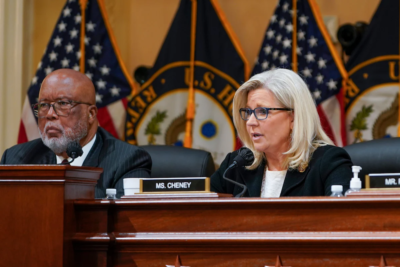 Bennie Thompson and Liz Cheney are the Jan. 6 committee’s unusual dynamic duo. By Eugene Robinson / Wash Post
Bennie Thompson and Liz Cheney are the Jan. 6 committee’s unusual dynamic duo. By Eugene Robinson / Wash Post
Reps. Bennie G. Thompson and Liz Cheney have radically different political philosophies and life experiences. But with Thompson as its leader and Cheney as his second-in-command, the House Jan. 6 committee has conducted one of the most impressive congressional investigations the nation has ever seen.
The responsibility of learning and telling the story of the 2021 Capitol insurrection brought these partisan opponents together as chair and vice chair of the Jan. 6 committee. Their separate forewords to the committee’s final report, released Thursday, tell what united these unlikely partners. Read more
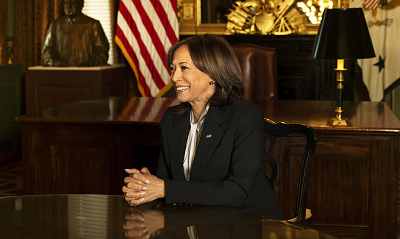 Kamala Harris, a Very Turbulent Year in America, and the Challenge of Being First. By Molly Jong-Fast / Vanity Fair
Kamala Harris, a Very Turbulent Year in America, and the Challenge of Being First. By Molly Jong-Fast / Vanity Fair
In an interview with Vanity Fair, the vice president discusses protecting abortion rights post-Roe and tackling immigration, along with how, as a woman of several firsts—from DA to AG to VP—she hopes to “create a path and widen the path for others.”
The Dobbs decision, in June, was one of the most crucial moments of Harris’s historic term as vice president, which began in the aftermath of the January 6, 2021, attacks and is now approaching the midway point, a time to reflect on challenges and accomplishments, such as the passing of the Respect for Marriage Act—a bill that became more urgent in light of Clarence Thomas threatening same-sex marriage rights while striking down Roe. Read more
Related: Texas busses migrants near Kamala Harris’ residence on Christmas Eve. By Giulia Heyward / NPR
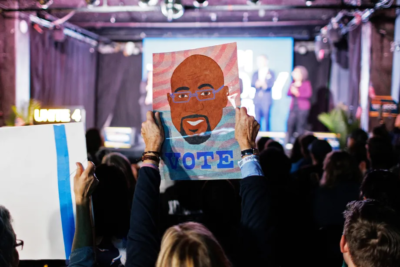 Georgia shows the growing power of Asian American voters. By Li Zhou / Vox
Georgia shows the growing power of Asian American voters. By Li Zhou / Vox
The group, once again, had strong turnout — a sign that 2020 was no anomaly.
While Georgia’s overall voter turnout didn’t change much between the 2018 and 2022 midterms, at least one group saw some pretty significant gains: Asian American and Pacific Islander voters. According to Emory University political scientist Bernard Fraga, the percentage of eligible AAPI voters who participated in Georgia’s November elections went from 34.9 percent in 2018 to 37.4 percent in 2022, making for the biggest jump of any group this cycle. Read more
Related: Defining ‘Asian American’ is complicated. Who gets left behind? By Meena Venkataramanan / Wash Post
Related: Casinos Target a Vulnerable Clientele: Older Asian Gamblers. Nicole Hong and
 Why Are So Many Black Men Shot in New Haven? By Nicholas Dawidoff / The Atlantic
Why Are So Many Black Men Shot in New Haven? By Nicholas Dawidoff / The Atlantic
I moved back to New Haven in 2012, to begin work on a book about the neighborhood consequences of structural disparity, including violence.
New Haven really is representative of what remains a persistent American problem, from Trenton to Philadelphia to Baltimore and on across the heartland: fully formed working-class neighborhoods without any well-paying work. In all the years since I was a kid playing baseball, while well-endowed universities in places like New Haven—and their graduates—have become wealthier than ever, their straitened next-door neighbors have suffered a generational lack of opportunity and all the dangers that come with it. The universities have conceived no postindustrial solution, and neither has anybody else. Read more
 COVID death data hides true toll on Black, Hispanic, Indigenous people. By Betsy Ladyzhets, Shaena Montanari, and Rachel Monahan / USA Today
The true toll of the COVID-19 pandemic on many communities of color is worse than previously known.
COVID death data hides true toll on Black, Hispanic, Indigenous people. By Betsy Ladyzhets, Shaena Montanari, and Rachel Monahan / USA Today
The true toll of the COVID-19 pandemic on many communities of color is worse than previously known.It’s not always easy to identify a COVID-19 death. If someone dies at home, if they have symptoms not typically associated with the disease or if they die when local health systems are overwhelmed, their death certificate might say “heart disease” or “natural causes” when COVID-19 is, in fact, at fault. New research shows such inaccuracies also are more likely for Americans who are Black, Hispanic, Asian or Native. The true toll of the COVID-19 pandemic on many communities of color – from Portland, Oregon, to Navajo Nation tribal lands in Arizona, New Mexico and Utah, to sparsely populated rural Texas towns – is worse than previously known. Read more
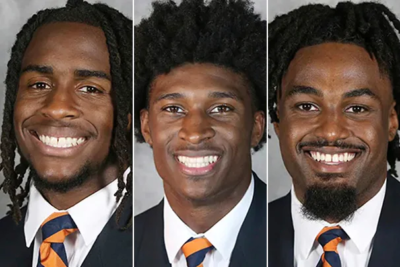 ‘The weight of being a Black student feels so heavy right now.’ By Emily Davies / Wash Post
‘The weight of being a Black student feels so heavy right now.’ By Emily Davies / Wash Post
The shooting of three students at U-Va., who were all Black, has hit hard a tight-knit community on campus. From left, Devin Chandler, Lavel Davis Jr. and D’Sean Perry, the three U-Va. football players who were killed in a shooting Nov. 13.
At this school, all of campus mourned the loss of the three Black undergraduate student-athletes — Lavel Davis, D’Sean Perry and Devin Chandler. But the pain has been especially acute for many Black students, who have learned to lean on one another at a majority White school in a mostly White city with a racist history that has, in many ways, extended to the present. Read more
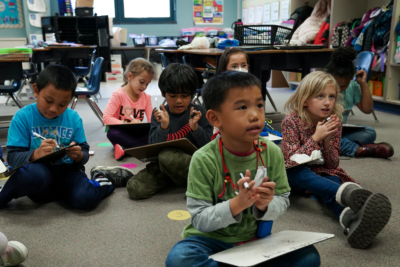 How Black activists in Northern Virginia transformed the way children learn to read. By Sarah Carr / Wash Post
How Black activists in Northern Virginia transformed the way children learn to read. By Sarah Carr / Wash Post
First-graders sound out spelling words at Hunt Valley Elementary School in Springfield, Va., on Nov. 18. (Jahi Chikwendiu/The Washington Post)
Ethics / Morality / Religion
 White House Wishes Black Families A Happy Kwanzaa On Holiday’s First Day. Sanjana Karanth / HuffPost
White House Wishes Black Families A Happy Kwanzaa On Holiday’s First Day. Sanjana Karanth / HuffPost
President Joe Biden commemorated the seven-day holiday honoring African heritage and Black American culture.
President Joe Biden, Vice President Kamala Harris and their spouses wished a happy Kwanzaa to those celebrating, as the first day of the holiday honoring African heritage and Black American culture kicked off on Monday. “Jill and I wish everyone a happy Kwanzaa,” Biden said in a video with the first lady, adding that they “give thanks to the rich heritage of African Americans, which is deep in the story of our nation.” Read more
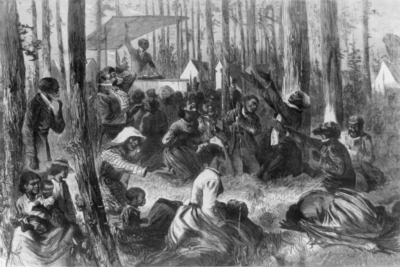 Race, Religion, and The History Behind ‘Heathen.’ By Hayley Madi / AAIHS
Race, Religion, and The History Behind ‘Heathen.’ By Hayley Madi / AAIHS
“A Negro camp meeting in the South,” wood engraving, August 10, 1872 (Wikimedia Commons)
Heathen: Religion and Race in American History, by Kathryn Gin Lum, argues that the label of “heathen” denotes a broad and elastic category that has been applied to vastly different people all over the world by white Christian Americans seeking to define themselves in juxtaposition to a presumably inferior “other.” Though the term heathen eventually fell out of common usage in favor of a racialized social hierarchy, its foundational concepts remained. Significantly, Heathen is about continuity as much as it is about change. Gin Lum sees the notion of heathen as part of “a modernist project which has developed alongside imperial beliefs about the Other” (17). Read more
 Republicans will “get crushed”: Evangelicals sour on “elementary schoolchild” Trump’s 2024 bid. By Maya Boddie / Alternet
Republicans will “get crushed”: Evangelicals sour on “elementary schoolchild” Trump’s 2024 bid. By Maya Boddie / Alternet
A “silent majority” that supported Donald Trump in his 2016 and 2020 presidential runs is now quietly bowing out, Vanity Fair reports.
However, despite Trump keeping several promises to evangelical voters during his term — including nominating conservative judges to the Supreme Court and successfully overturning Roe v. Wade as a result — it may not be enough to win the voting bloc over again. Last month, Washington Times Columnist Everett Piper penned an article in which she expressed that Trump is “hurting…not helping” evangelicals. She said, “the take-home of this past week is simple: Donald Trump has to go.” “If he’s our nominee in 2024, we will get destroyed,” Piper added. Recently James Robinson, a prominent televangelist compared Trump to a “little elementary schoolchild.” Read more
Historical / Cultural
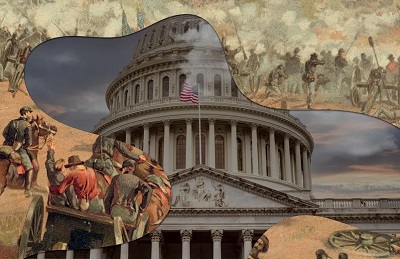 Was the Civil War Inevitable? By David W. Blight / NYT
Was the Civil War Inevitable? By David W. Blight / NYT
A historian of the conflict traces the path to disunion in the 1850s — and the lessons it holds for our own era of deep division.
Authoritarianism is an American historical tradition, newly energized and threatening our republican existence. In coming elections, we shall see whether our 21st-century democracy will live or die honestly, whether we, too, are heading for collapse or renewal through politics, law or civil conflict. How we answer such challenges will determine whether it is 1857 again in America. Even if it is, we need to remember that antislavery advocates did not merely lay down in front of the juggernaut of Dred Scott; they mobilized and fought back — over race, rights and their future. Read more
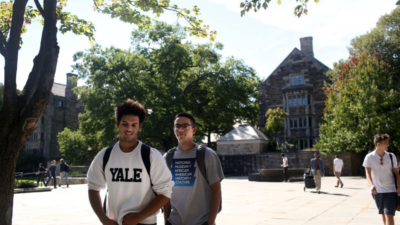 Yale Creates Scholarship for HBCUs As Slavery Reparations. By Nicole Duncan-Smith / Atlanta Black Star
Yale Creates Scholarship for HBCUs As Slavery Reparations. By Nicole Duncan-Smith / Atlanta Black Star
Yale University will now provide financial assistance to students graduating from a local Connecticut high school to attend any historically Black colleges or universities of their choosing.
The award is a part of an initiative started over the last few years, which aims to provide a form of reparation to Black people for the institution’s participation in American slavery. Recipients of the scholarship will have to go to school out of state, as there are no HBCUs in The Constitution State. Read more
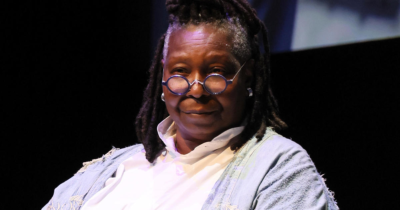 Whoopi Goldberg again claims Holocaust wasn’t originally about race. By Ll Cohen / CBS News
In the interview with
Whoopi Goldberg again claims Holocaust wasn’t originally about race. By Ll Cohen / CBS News
In the interview with 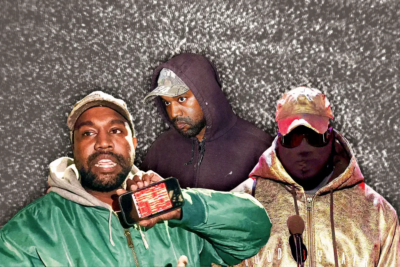 This is the year we were done with Kanye West – but what does that really mean? By Melanie McFarland / Salon
This is the year we were done with Kanye West – but what does that really mean? By Melanie McFarland / Salon Kendrick Lamar’s New Chapter: Raw, Intimate and Unconstrained. By Mitchell S. Jackson / NYT
In partnership with his longtime collaborator, Dave Free, the greatest rapper of his generation is pushing himself — commercially and creatively — onto unexpected terrain.
Kendrick Lamar’s New Chapter: Raw, Intimate and Unconstrained. By Mitchell S. Jackson / NYT
In partnership with his longtime collaborator, Dave Free, the greatest rapper of his generation is pushing himself — commercially and creatively — onto unexpected terrain. A Jazz Album Made to Last. By Nathan Heller / The New Yorker
A Jazz Album Made to Last. By Nathan Heller / The New Yorker  How Megan Thee Stallion’s court battle highlights misogyny targeting Black women. By Lauren Barron-Lopez / PBS
How Megan Thee Stallion’s court battle highlights misogyny targeting Black women. By Lauren Barron-Lopez / PBS  ‘I Wanna Dance With Somebody’ fact check: Whitney Houston’s true story. By Melissa Ruggleri / USA Today
‘I Wanna Dance With Somebody’ fact check: Whitney Houston’s true story. By Melissa Ruggleri / USA Today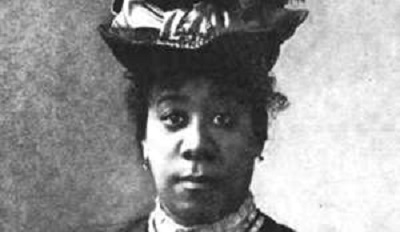 A pioneering Black author’s novel takes us to a Wakanda-like civilization. By Michael Dirda / Wash Post
A pioneering Black author’s novel takes us to a Wakanda-like civilization. By Michael Dirda / Wash Post The luxury tax assessed on Black women.
The luxury tax assessed on Black women.  Roberto Clemente remains Latino legend 50 years after death. By Associated Press
Roberto Clemente remains Latino legend 50 years after death. By Associated Press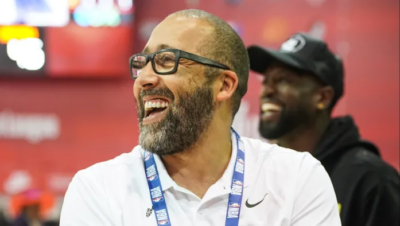 How David Fizdale went from the NBA sidelines to the Utah Jazz’s front office. By Marc J. Spears / Andscape
How David Fizdale went from the NBA sidelines to the Utah Jazz’s front office. By Marc J. Spears / Andscape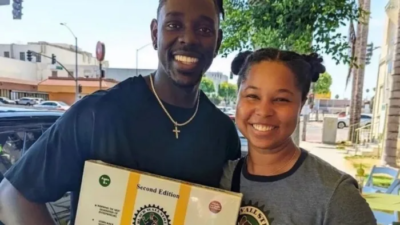 Milwaukee Bucks’ Jrue Holiday gives the NBA important history through Black Wall Street the Board Game. By Marc J. Spears / Andscape
Milwaukee Bucks’ Jrue Holiday gives the NBA important history through Black Wall Street the Board Game. By Marc J. Spears / Andscape Miami Dolphins owner Stephen Ross leaves board of anti-racism group he founded. By Dwayne Bray / Andscape
Miami Dolphins owner Stephen Ross leaves board of anti-racism group he founded. By Dwayne Bray / Andscape